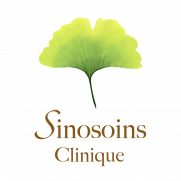August 22, 2023
Acupuncture and Chinese medicine have been used for centuries to address various health issues and increasingly recognized as effective methods to assist with infertility, particularly for individuals over the age of 40. These traditional practices are seen as a way to extend the reproductive window and enhance fertility potential. Research has indicated that couples using Chinese herbal medicine are twice as likely to conceive within a four-month period compared to those who do not. Furthermore, acupuncture could potentially reduce the time it takes to become pregnant by half.
How does acupuncture work?
Acupuncture, a key component of TCM, involves the insertion of thin needles into specific points on the body to balance energy flow. Research suggests that acupuncture can improve blood supply to the uterus and ovaries, which is associated with improved In Vitro Fertilization (IVF) conception rates. This increased blood flow can enhance embryo implantation, thereby potentially increasing the chances of pregnancy.
Chinese medicine can improve ovarian and uterine function, optimize the growth of the dominant follicle within an ovary, and improve the environment in which an egg matures. This can indirectly influence the maturity and quality of the egg, thus increasing the chances of successful conception and pregnancy. Both Chinese herbal medicine and acupuncture have been shown to improve ovarian and uterine blood flow, regulate endocrine hormones such as FSH & LH (luteinising hormone), increase estrogen and progesterone levels, and normalize both the follicular and luteal phases of the menstrual cycle.
Besides acupuncture
In addition to acupuncture, Chinese herbs are often prescribed as part of TCM fertility treatments. These herbs are typically combined in balanced formulas designed to address whole body health and, consequently, fertility. A meta-analysis found that appropriate use of Chinese herbs could double fertility rates within four months. Herbal formulas can help regulate the menstrual cycle and ovulation, thicken the uterine lining, regulate hormones, prevent certain types of miscarriage, and improve overall health.
In addition to these benefits, Chinese medicine also improves the thickness of the endometrial lining, thereby enhancing the endometrial receptivity to an embryo. This is crucial for a successful conception and pregnancy. A case study highlighted a 45-year-old woman who had a very low response rate during her two IVF cycles. After five months of taking Chinese herbs, she conceived naturally and successfully entered her second trimester.
TCM for infertility
For women over 40, acupuncture and Chinese medicine can be particularly beneficial. They can improve egg quality, uterine lining quality, and possibly even sperm parameters. While these treatments cannot increase ovarian reserve, they can enhance the quality of eggs, uterine lining, and sperm by improving blood flow to the ovaries and testes. It’s important to note that while Chinese medicine can effectively improve ovarian and uterine function and other fertility markers, it cannot reverse the aging process. Therefore, it’s recommended to consult with a specialist if you haven’t become pregnant within six months of trying after the age of 40. There are many options available depending on your age, health history, and your partner’s age and health history. Infertiliy experts like Hong Qian at Sinosoins Clinic can provide personalized recommendations and help pinpoint areas for improvement.
How long will it take?
It is important to note that TCM treatments usually require time to restore the body’s balance. Fertility treatment plans in TCM typically range from about three to six months and can extend to a year or two for more serious cases.
Final thought
Acupuncture and Chinese medicine can offer a holistic approach to addressing infertility for women over 40. By focusing on improving overall health and well-being, these treatments can enhance fertility and increase the chances of conception.
